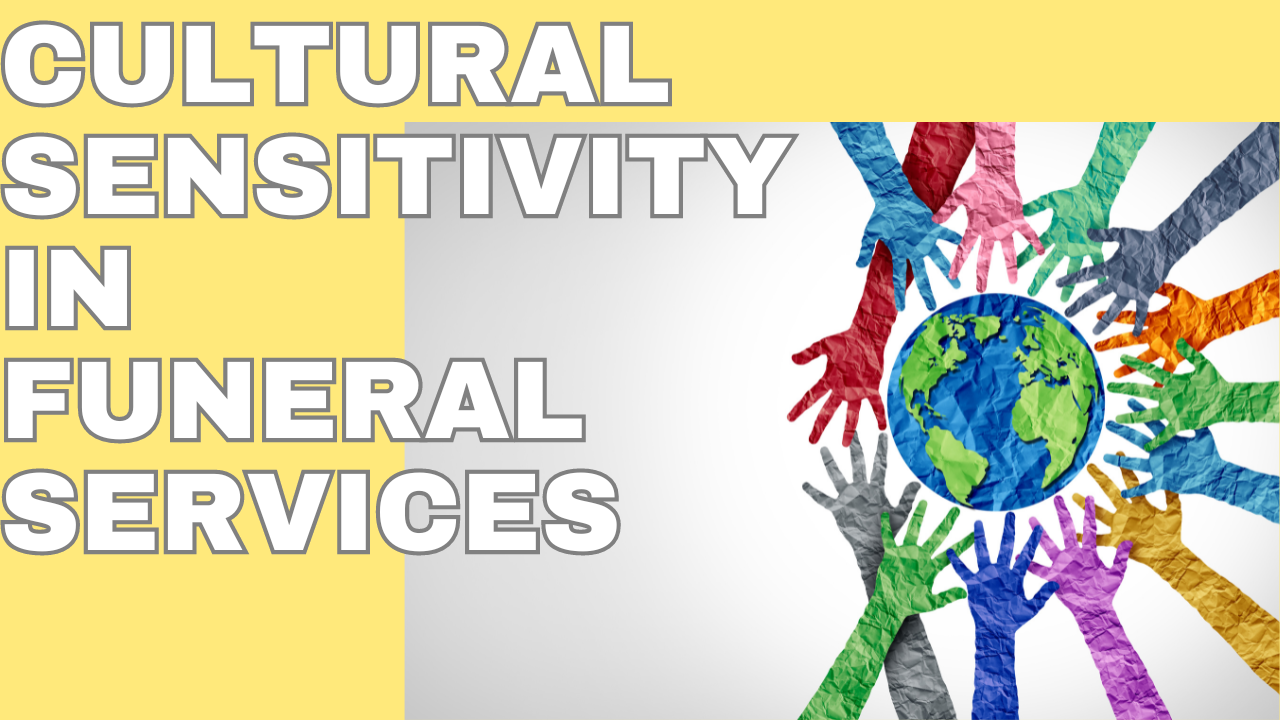Losing a loved one is an emotional and challenging experience. During this difficult time, it’s important to honor the deceased and provide support to grieving family members. Cultural sensitivity plays a crucial role in ensuring that funeral services are respectful, inclusive, and meaningful for people from diverse backgrounds.
Across the globe, cultural perspectives on death and related rites vary dramatically. In Western societies, for instance, death is often viewed with solemnity. However, other cultures may celebrate the life of the deceased through vibrant ceremonies and rituals. To provide culturally sensitive funeral services, it’s essential to understand the unique customs and traditions of different communities.
Role of Funeral Service Providers
Funeral service providers play a vital role in creating an environment that respects cultural diversity. Here are some key considerations:
1) Education and Training: Funeral directors and staff should receive training on cultural sensitivity to better serve diverse communities.
2) Communication and Coordination: Effective communication with the family is crucial to understanding their cultural preferences and ensuring that their wishes are respected.
3) Legal and Ethical Considerations: Funeral service providers must adhere to legal requirements while accommodating cultural practices.
Cultural Sensitivity Checklist
To provide culturally sensitive funeral services, consider the following checklist:
Awareness
Value diversity: View human differences as positive and a cause for celebration.
Know yourself: Understand your own ethnic, cultural, and racial identity and how it may be perceived by others.
Share your culture: Be prepared to share your own culture to foster understanding.
Be aware of areas of discomfort: Recognize discomfort when encountering differences in race, religion, sexual orientation, language, or ethnicity.
Check assumptions: Identify and challenge assumptions you may hold about people from different cultures
Challenge stereotypes: Acknowledge stereotypes and develop strategies to reduce their harmful impact.
Reflect on how your culture informs judgment: Recognize how your cultural perspective influences your judgment about behaviors, values, and communication styles.
Accept ambiguity: Embrace uncertainty in cross-cultural situations and acknowledge discomfort as part of personal growth.
Be curious: Seek opportunities to learn about different cultures and establish diverse connections.
Be aware of privilege: Recognize inherent racial privilege when working with members of BIPOC communities.
Role of Funeral Service Providers
Understanding Cultural Sensitivities: Familiarize yourself with the customs and traditions associated with different cultures’ funeral practices.
Communication and Coordination: Establish open lines of communication with the family to understand their cultural preferences regarding funeral arrangements.
Legal and Ethical Considerations: Ensure compliance with legal requirements while accommodating cultural practices.
Challenges and Solutions
Language Barriers: Provide interpreters or translation services to facilitate effective communication between funeral service providers and families who speak different languages.
Religious Practices: Familiarize yourself with various religious practices to accommodate specific rituals or ceremonies.
Cultural Customs: Respect cultural customs related to body preparation, burial rites, mourning periods, and memorial services.
Training and Education for Cultural Sensitivity
Continual education is essential for funeral service providers to enhance their cultural sensitivity skills. Consider the following:
1) Workshops and Seminars: Attend workshops or seminars focused on cultural sensitivity training in the funeral industry.
2) Collaboration with Community Organizations: Partner with local community organizations to gain insights into specific cultural practices.
This article provides an overview of the importance of cultural sensitivity in funeral services. By embracing cultural diversity, funeral service providers can create meaningful experiences that honor the deceased while supporting grieving families.
Remember, every individual’s journey through grief is unique. It’s essential to approach each situation with empathy, compassion, and respect for diverse cultural backgrounds.

